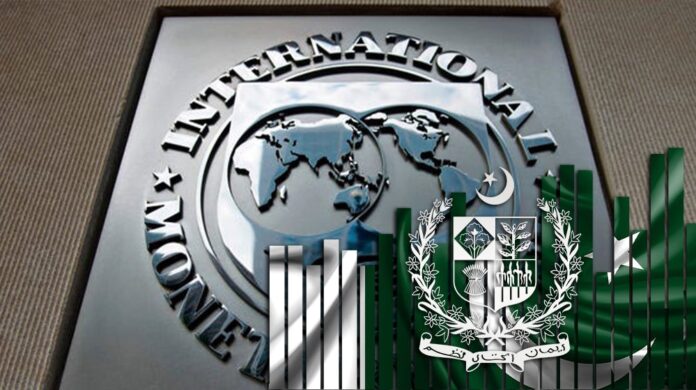Pakistan and the International Monetary Fund (IMF) have engaged in talks from today (Monday) to discuss a new loan deal ahead of the upcoming budget for the fiscal year 2024-25.
Under the leadership of Mission Chief Nathan Porter, the IMF team has commenced an introductory meeting with Pakistan’s economic team, led by Finance Minister Muhammad Aurangzeb.
These consultations, expected to span around two weeks, are primarily intended to address a fresh loan program and the budget for the upcoming financial year.
Pakistan’s Finance Minister Muhammad Aurangzeb, while addressing a Pre-Budget Conference FY2024-25 in Lahore on Sunday, said that the government was taking decisions that seem tough but are in the larger interest of the country’s economy and its people.
“We are doing all this not under the pressure of the IMF but for Pakistan because the country is supreme to all of us.”
Pakistan is seeking a larger and longer loan program to stabilise and revive its economy and the talks would determine the size and scope of the new program.
However, it was earlier reported that the government wanted a three to four-year bailout package of $6 billion and $8 billion.
The finance minister said that the government was also taking all possible measures and ensuring institutional reforms to restore the confidence of the business community in the tax collection institutions, especially the Federal Board of Revenue (FBR).
He said that effective steps were also being put in place to enhance financial support for various sectors out of which agriculture, information technology (IT) and SME (small and medium enterprises) are priority sectors.
He emphasised that the private sector would have to come forward and play a proactive role to steer the country out of present-day economic challenges, asserting that the government’s job is to improve governance and provide facilitation to businessmen and industrialists.
The federal finance minister said that the industry should not depend more on government subsidies on various counts but strive to transform into export-oriented entities, assuring that the government would provide all possible facilitation in this regard.
Responding to questions, he said that a lot of reforms have to be done on tax-to-GDP, energy, and privatisation matters.
“We have to eliminate electricity pilferage,” he said, adding that the private sector’s representation is being ensured in the boards of directors (BoDs) of power distribution companies.
Giving a uniform tariff to industrialists across the country is a legitimate demand that should be addressed, he asserted.
Aurangzeb said that in a meeting with the CEO of commercial banks, he had urged the banks to make arrangements for enhancing the finances for agriculture, IT and SME sectors.
He also appealed to the SMEs to improve their documentation so that the banks could easily evaluate them for loans/fiscal support.
He said that the industry could not operate at an interest rate of 25 to 26 percent, asserting that when inflation has come down, then interest rates should also come down.
As far as the privatisation of various public sector enterprises is concerned, he said that the government is taking onboard local investors along with foreign investors, citing that foreign as well as local investors are involved in the privatisation process of PIA.




